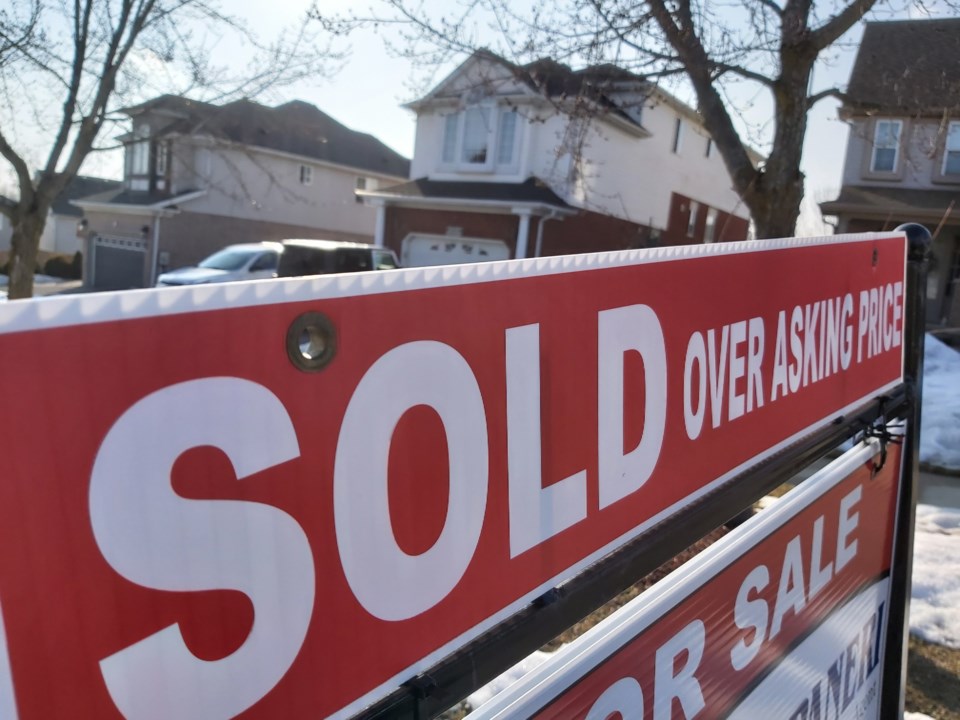The average cost of buying a home in Guelph has risen by more than 55 per cent in the past five years, reports the Canadian Real Estate Association (CREA), even though the latter part of 2022 saw a 10 per cent dip.
“What we’re seeing is the end of a long run that started, depending who you ask, in 2009,” Tyson Hinschberger, president of the Guelph and Area Association of Realtors, said of the overall average price increase, noting some people believe the run began in the 1990s.
“It speaks to the viability of real estate as an investment. As we continue to grow the population and see demographics change, you have scarcity of land, you have utility of land for development and commerce as well, so those fundamental drivers of value continue to exist despite a market where interest rates are having a big effect.”
Those rising interest rates are largely responsible for a 10 per cent decrease during the last half of 2022, Hinschberger believes.
At the start of last year, the Bank of Canada-set interest rate was 0.25 per cent. There were seven increases throughout the year, ending December at 4.25 per cent.
“With that came higher payments for those looking at variable rates or who are on a variable rate, and then obviously an affordability crunch for people that were contemplating buying,” he explained.
The average national home sale price was $626,318 in December, which is down 12 per cent from a year prior ($711,579), the CREA report notes.
“We’re definitely in a much more balanced situation than we spent much of 2022 in,” said Hinschberger. “Buyers have more leverage now because … there are properties that have started to spend more time on the market and those properties often come with a little more leverage for a buyer to walk in and make an offer that maybe makes more sense for them.”
The flip side of that coin, he added, is that people who have owned their home for several years have built up equity in it and may be comfortable waiting longer to see if another wanting buyer will offer more.
“Real estate still has, generally, long-term positive prospects as an investment,” Hinschberger said. “There definitely is some (downside risk in the market). The challenge becomes looking at the future of interest rate adjustments and what the Bank of Canada chooses to do.
“If they hold their key policy rate the same, there’s maybe somewhat less downside risk than there is if they continue to raise it – not only from an economic standpoint but from a sheer affordability standpoint for buyers,” he continued.
“That downside risk is probably greater than it has been at other times.”
